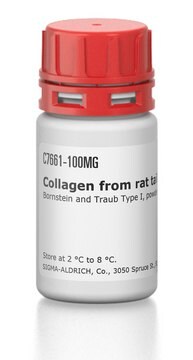360589
Tetrahydrofuran
≥99.0%, ACS reagent, contains 250 ppm BHT as inhibitor, suitable for HPLC
Synonym(s):
THF, Butylene oxide, Oxolane, Tetramethylene oxide
About This Item
Recommended Products
product name
Tetrahydrofuran, contains 250 ppm BHT as inhibitor, ACS reagent, ≥99.0%
grade
ACS reagent
Quality Level
vapor density
2.5 (vs air)
vapor pressure
114 mmHg ( 15 °C)
143 mmHg ( 20 °C)
Assay
≥99.0%
form
liquid
autoignition temp.
610 °F
contains
250 ppm BHT as inhibitor
expl. lim.
1.8-11.8 %
technique(s)
HPLC: suitable
impurities
≤0.015% peroxide (as H2O2)
≤0.05% water
evapn. residue
≤0.03%
color
APHA: ≤20
refractive index
n20/D 1.407 (lit.)
pH
~7
bp
65-67 °C (lit.)
mp
−108 °C (lit.)
solubility
water: soluble
density
0.889 g/mL at 25 °C (lit.)
SMILES string
C1CCOC1
InChI
1S/C4H8O/c1-2-4-5-3-1/h1-4H2
InChI key
WYURNTSHIVDZCO-UHFFFAOYSA-N
Looking for similar products? Visit Product Comparison Guide
General description
Application
- Organic synthesis
b) Organometallic compounds
c) Reformatsky
d) Lithiation
e) Hydride reduction
f) Metal-catalyzed coupling (Heck, Stile, Suzuki)
g) Lewis acid mediated reactions
- Crystallization
- Polymerization. Ex. RAFT (Reversible Addition-Fragmentation Chain Transfer) polymerization of p-acetoxystyrene
- Coatings
- As an O-donor ligand to form coordination complexes
- As mobile phase solvent in high-performance liquid chromatography
Features and Benefits
related product
Signal Word
Danger
Hazard Statements
Precautionary Statements
Hazard Classifications
Acute Tox. 4 Oral - Carc. 2 - Eye Irrit. 2 - Flam. Liq. 2 - STOT SE 3
Target Organs
Central nervous system, Respiratory system
Supplementary Hazards
Storage Class Code
3 - Flammable liquids
WGK
WGK 1
Flash Point(F)
-6.2 °F - closed cup
Flash Point(C)
-21.2 °C - closed cup
Certificates of Analysis (COA)
Search for Certificates of Analysis (COA) by entering the products Lot/Batch Number. Lot and Batch Numbers can be found on a product’s label following the words ‘Lot’ or ‘Batch’.
Already Own This Product?
Find documentation for the products that you have recently purchased in the Document Library.
Customers Also Viewed
Our team of scientists has experience in all areas of research including Life Science, Material Science, Chemical Synthesis, Chromatography, Analytical and many others.
Contact Technical Service







